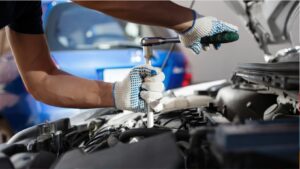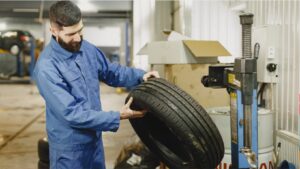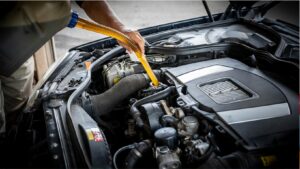Vehicle Care & Maintenance
Taking care of your vehicle is crucial to ensure its longevity and optimal performance. By following these essential maintenance tips, you can keep your car running smoothly and prevent costly repairs in the long run.
Regular oil changes are vital to maintaining the health of your vehicle’s engine. It’s recommended to change the oil every 5,000 to 7,500 miles, or as advised by your car’s manufacturer. Clean oil keeps the engine lubricated, reduces friction, and prevents overheating.
Proper tire care is essential for both safety and performance. Check your tire pressure regularly, at least once a month, to ensure they are inflated to the recommended level. Additionally, inspect the tread for wear and tear, and rotate your tires every 5,000 to 8,000 miles to promote even wear.
Vehicle Care & Maintenance essential fluids such as coolant, brake fluid, and transmission fluid is vital for your vehicle’s overall health. Low fluid levels can lead to engine damage, brake failure, or transmission issues. Schedule routine checks to maintain the proper levels and prevent potential problems.
The Benefits of Routine Vehicle Inspections
Vehicle Care & Maintenance offer numerous benefits that enhance safety, longevity, and performance, ensuring optimal functioning and minimizing the risk of unexpected breakdowns.
Routine vehicle inspections play a crucial role in ensuring the safety of both the driver and passengers. By identifying potential issues early on, such as worn-out brake pads or tires with insufficient tread depth, inspections help prevent accidents and breakdowns on the road.
Consistent vehicle inspections contribute significantly to the longevity and performance of the vehicle. By detecting and addressing minor issues promptly, such as fluid leaks or engine malfunctions, inspections help maintain the vehicle’s overall health and functionality, extending its lifespan and ensuring smooth operation.
Common Vehicle Issues and How to Address Them
When it comes to vehicle maintenance, addressing common issues promptly is essential to ensure the longevity and performance of your car.
Brake issues are a common concern among drivers and can pose serious safety risks. One frequent problem is worn-out brake pads, which can lead to decreased braking efficiency and loud noises when stopping. Another issue to watch out for is brake fluid leaks, which can compromise the braking system’s effectiveness.
To address brake problems, it’s crucial to have your brake system regularly inspected by a professional. If you notice any signs of brake trouble such as squeaking noises or a spongy brake pedal, it’s recommended to seek immediate attention to prevent potential accidents and ensure your safety on the road.
Engine troubles can manifest in various ways, from strange noises and vibrations to stalling or difficulty starting the car. One common engine issue is a malfunctioning oxygen sensor, which can lead to decreased fuel efficiency and performance. Another frequent problem is a dirty air filter, impacting the engine’s airflow and combustion process.
To address engine problems, regular engine inspections are key to identifying issues early on. If you experience any unusual engine symptoms, such as rough idling or poor acceleration, it’s advisable to have your vehicle inspected by a qualified mechanic. Taking proactive steps to address engine troubles can help maintain your car’s performance and prevent costly repairs down the line.
Ensuring regular vehicle maintenance is essential for optimal performance and longevity. From oil changes to tire care and fluid checks, every task plays a crucial role in keeping your vehicle running smoothly. Routine inspections not only enhance safety but also help in early detection of potential issues. Addressing common problems promptly, such as brake issues, is key to preventing major breakdowns. Regular engine inspections are vital for maintaining fuel efficiency. When selecting maintenance professionals, consider qualifications like certifications, experience, and reputation to ensure top-notch service tailored to your vehicle’s specific needs. Prioritizing maintenance today can save you from costly repairs tomorrow.

